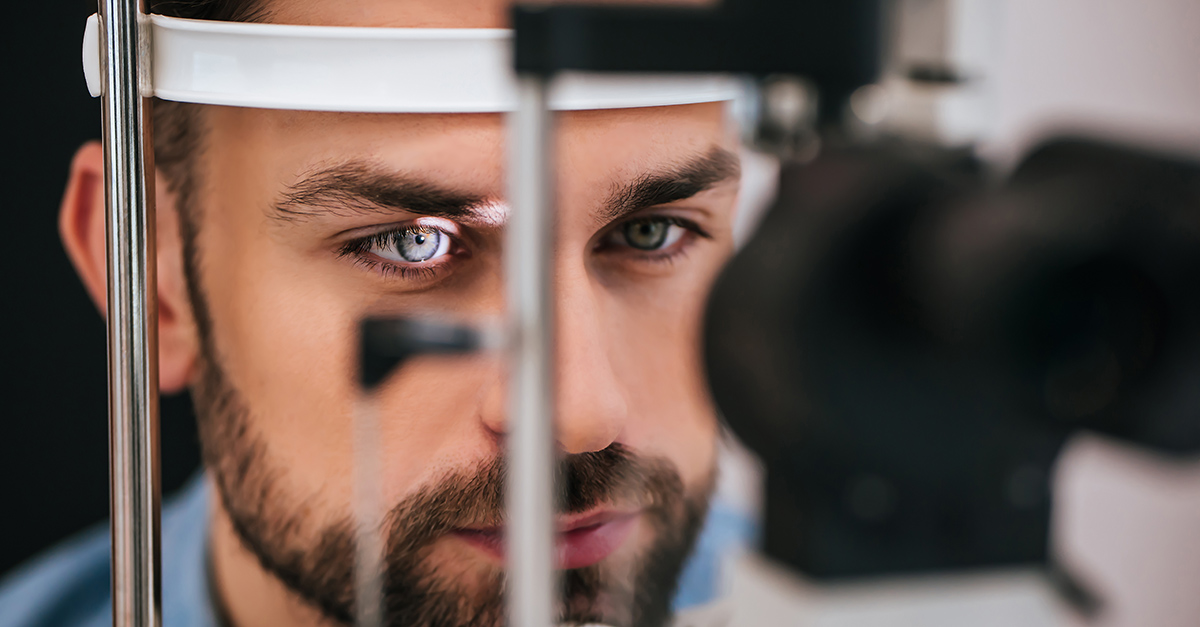What Can I Do to Prevent Glaucoma?

Glaucoma is a group of eye conditions that can damage the optic nerve, sometimes resulting in permanent vision loss. Along with age-related macular degeneration and cataract, glaucoma is one of the leading causes of blindness and low-vision in the United States. Many forms of glaucoma have no warning signs, meaning that you may not notice a change in your vision until the condition is at an advanced stage. Fortunately, almost all vision lost due to glaucoma can be prevented if the disease is detected early and appropriately treated.
In this article, we’ll review the risk factors that play into the development of glaucoma and the steps you can take to help detect glaucoma in its early stages. This is an essential component in the prevention of vision loss and slowing the progress of the disease. For more information on Florida Eye Center’s comprehensive approach to glaucoma treatment in Tampa, schedule a visit with one of our physicians.
Related: Types of Glaucoma and Their Treatment Options
What Are the Risk Factors for Glaucoma?
While everyone is at risk for glaucoma, certain groups are at higher risk for developing glaucoma than others. For example, glaucoma is six to eight times more common in African Americans than in Caucasians. Similarly, you are six times more likely to develop glaucoma if you are over the age of 60. Another important factor is family history because the most common type of glaucoma, primary open-angle glaucoma, is hereditary. This can increase your risk of glaucoma by four to nine times.
That being said, these certainly aren’t the only risk factors. Other factors that increase the risk for glaucoma include:
- High eye pressure
- Low eye pressure
- Corneas that are thin in the center
- Thinning of the optic nerve
- Very severe nearsightedness or farsightedness
- Eye injury or certain types of eye surgery
- Certain medical conditions, such as diabetes, high blood pressure, heart disease, and sickle cell anemia
- Use of corticosteroid medicines, especially eye drops, for an extended period of time
The risk factors vary depending on the type of glaucoma. For example, normal-tension glaucoma is accompanied by risk factors like cardiovascular disease and Japanese ethnicity. Angle-closure glaucoma, on the other hand, is much more prominent in those of East Asian or Inuit descent. For more information regarding your risk for developing glaucoma, contact an eye doctor in Tampa at the Florida Eye Center.
Related: An Overview of Diabetic Eye Disease
What Steps Can I Take to Lower My Risk for Glaucoma?
Before we move on to the steps you can take to delay the onset of glaucoma and decrease your risk of severe eye damage and irreversible blindness, we’d like to preface this by restating that there is no surefire way to prevent glaucoma. The steps we’re going to review are simply suggestions for your general physical well-being. For starters, since serious eye injuries can easily lead to glaucoma, we recommend wearing eye protection when playing sports with high-speed projectiles or using power tools.
Additionally, as with all hereditary diseases, we recommend that you know your family’s eye health history. This will help you determine how frequently you should be tested. Some of our more general suggestions for physical well-being include:
- Keep your blood pressure at a normal level
- Try to engage in regular physical activity
- Prevent overexposure to sunlight
- Eat fruits and vegetables abundant in vitamin C, such as green peppers and citrus fruits.
Related: Treating Glaucoma With Laser Eye Surgery
Timely Diagnosis and Appropriate Treatment
Above all else, the most important thing you can do to defend against glaucoma is to get routine eye exams in which an eye doctor will check your eye pressure, check your optic nerve for damage, and conduct a glaucoma screening. At Florida Eye Center, we use specialty instruments to measure the eye’s intraocular pressure and visually inspect the health of your optic nerve. If the diagnosis of glaucoma is confirmed, then treatment will begin immediately.
If taken properly, medication should control your eye pressure and reduce vision damage without the need for laser treatment or surgery. If you are over the age of 40 and have not received a glaucoma check within the past three years, schedule a visit today with one of our physicians.
To schedule a consultation with an eye doctor in Tampa at the Florida Eye Center, please request an appointment today.
Disclaimer: The contents of this website are for general educational purposes only. All content and media on the Florida Eye Center website does not constitute professional medical advice nor is the information intended to replace the services provided by the medical professionals at Florida Eye Center or other qualified medical professionals. If you believe you are having a medical emergency, call 911 immediately.
The content, views, and opinions communicated on this website do not represent the views of Florida Eye Center. Reliance on any information provided by this website is solely at your own risk. Although this website contains links to other medical websites, this is strictly for informational purposes. Florida Eye Center is not responsible nor do they approve of the content featured on any third party linked websites referenced on this website.
Additional Resources
To request an appointment, please access the form below or contact our office at (813) 972-4444. While we do our best to accommodate your request, appointment requests made through our website are not guaranteed until confirmed by our office. If this is an emergency, please call 911.

